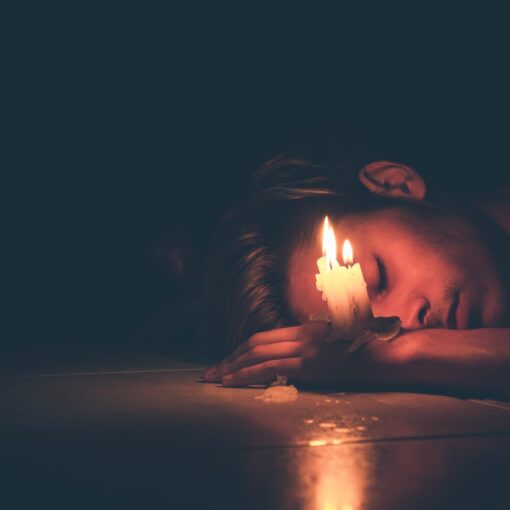Page Menu
Dealing with depression is something that you want to do correctly in order to guarantee that you are addressing the underlying problems and not just providing momentary respite. These depression suggestions may be of great assistance in your quest for happiness and a more balanced outlook on life.
Key Concepts and Top Takeaways
– Recognize symptoms of depression, such as persistent sadness and fatigue.
– Seek professional help from a therapist or psychiatrist for diagnosis.
– Consider medication options like antidepressants if prescribed.
– Engage in regular physical activity to boost mood naturally.
– Maintain a balanced diet rich in nutrients that support mental health.
– Establish a consistent sleep routine to improve overall well-being.
– Connect with supportive friends and family to share your feelings.
– Practice mindfulness or meditation to reduce stress and anxiety.
– Set realistic goals to create a sense of accomplishment daily.
– Explore therapy options like cognitive-behavioral therapy (CBT) for coping strategies.
Please Note: This post may contain affiliate links. If you click one of them, we may receive a commission at no extra cost to you. As an Amazon Associate, I earn from qualifying purchases.

Symptoms Of Depression
Depression is a serious mental illness that can have a negative impact on one’s mood, physical health, relationships, and quality of life. Symptoms of depression are sometimes subtle but may include regular feelings of hopelessness or sadness, anxiety, irritability, withdrawal from others, insomnia or excessive sleepiness. If these symptoms are persistent for more than two weeks at a time or interfere with normal functioning, it may be time to seek medical attention.
I think we all go through a period of the blues, or feel down about something. But for some people, these feelings never go away, and they continue to spiral into depression. This feeling is one that affects your entire life, including your thoughts, actions, and physical health. Depression can ruin relationships and careers, and prevents you from living a happy life. With depression, it is possible to have an episode of happiness or joy, but it doesn't last long.
Depression is a mental illness that can have a significant influence on a person's everyday life. Depression causes feelings of sadness and hopelessness, which often lead to low self-esteem and a decrease in life pursuits. Depression impacts the quality of sleep, eating habits, productivity at work or school, and decision-making skills. It can be hard to recognize depression in yourself or someone else because it has such an impact on all aspects of life.
Causes Of Depression
Rates of depression are on the rise, with an estimated 20% of Americans experiencing symptoms at any given time. This can lead to a number of consequences, one being suicide. It is so important for those who are struggling to find resources to help them through this tough time.
There are many reasons why someone would experience depression, including biological, genetic, and environmental factors. Reasons may include trauma or abuse in childhood or losing a loved one.
Depression is a common mental disorder that can develop in anyone. Depression is characterized by feelings of sadness, emptiness, hopelessness, guilt, anger, anxiety and isolation. It is the leading cause of disability worldwide. The causes of depression are both biological and psychological. Biologically speaking, depression can be triggered by an imbalance in neurotransmitters like serotonin and dopamine. Psychological causes may include trauma or loss during childhood, which can lead to depression as an adult.
Depression is a mental illness, the most common of the clinical disorders. It is an overwhelming feeling of sadness, hopelessness and guilt that does not go away after a little time. Depression can be caused by a major loss in a person’s life such as death, divorce or job loss. It can also be caused by other events like childhood abuse or neglect, which can lead to depression later in life.
Dealing With Depression
Many people wonder what causes depression. There are many factors, including predisposition to the illness, diet, exercise habits, and lifestyle choices. Major depression is characterized by persistent feelings of sadness and loss of interest in activities that one used to enjoy. These symptoms interfere with everyday life and can lead to dramatic changes in weight or sleep patterns.
What causes depression? It differs for every person.
The causes of depression are typically considered to be a combination of psychological, biological, and social factors. Depression can be caused by a number of factors including the loss of a loved one or other significant event, poor self-esteem, drug abuse, lack of sleep or exercise, chronic pain, and a history of mental illness. Of course, it is important to determine what type of depression your client suffers from in order to know which treatment would be best for them.
Depression is a common issue in today's society, and it can happen to anyone, regardless of their race, gender or age. Depression can be caused by many things such as genetics, traumatic events, loneliness and feelings of guilt. The symptoms of depression vary from person to person, but some symptoms that may be indicative of a potential diagnosis include sadness, feelings of worthlessness or guilt, a loss of appetite or a significant change in weight and trouble sleeping.
Do Not Discontinue Medicines When You Have Depression
 If you are currently taking prescription medicines for depression, please read this article. It is important to continue taking these medications even if you are feeling better or your symptoms improve.
If you are currently taking prescription medicines for depression, please read this article. It is important to continue taking these medications even if you are feeling better or your symptoms improve.
A recent study has shown that people who stop taking their anti-depressant medication after they start to feel better, show a rise in depression levels. The study also showed that those patients who continued to take their medication for at least three months following remission were less likely to relapse and experienced fewer depressive symptoms than those who discontinued treatment too soon.
Depression is a serious medical condition that should be treated by a doctor. If you are diagnosed with depression, it is important to take your medications as prescribed. Depression is not something you can cure by simply discontinuing taking your medicines; rather, this will make the symptoms much worse and can lead to relapse.
Never discontinue a medicine on your own. Many individuals will begin a new medicine while they are feeling low and then discontinue it as soon as they feel better. This is a bad idea since it may make you feel much worse than you did before. Before discontinuing any medication, always contact your doctor.
Continue Normal Activities When You Have Depression
 Depression is a serious illness that can have a profound impact on one's mental health and emotional wellbeing. Although symptoms of depression will vary from person to person, there are ways to manage symptoms and continue with normal activities during periods of remission. Simple steps such as socializing, exercising, self-care routines, and maintaining a positive attitude can all help patients stay on top of any symptoms.
Depression is a serious illness that can have a profound impact on one's mental health and emotional wellbeing. Although symptoms of depression will vary from person to person, there are ways to manage symptoms and continue with normal activities during periods of remission. Simple steps such as socializing, exercising, self-care routines, and maintaining a positive attitude can all help patients stay on top of any symptoms.
When dealing with depression, it can be hard to know what your best course of action is. Depression can be debilitating and seemingly unending. However, there are many things that you can do to lessen the intensity of depression, including participating in normal activities. When people don't participate in their regular activities, they often feel more isolated and find it harder to find joy in their lives.
Depression is a serious mental disorder that affects nearly 3 million people in the United States alone. Depression can leave you feeling helpless and hopeless, but there are many ways to help yourself feel better. A few of these methods include exercise, meditation, and fulfilling your obligations.
An excellent suggestion for getting out of depression is to push yourself to do the activities you usually like doing. We typically lose interest in all of our favorite activities when we are sad. You can keep your spirits up by pushing yourself to perform your favorite hobbies.
Keep A Cheerful Attitude When You Feel Sadness Coming On
 Do you ever feel like your life is overwhelming? That there are just too many things to do, and that the weight of everything is making you want to give up? You're not alone! It's completely normal to have these feelings, but you don't have to let them bring you down. Instead, keep a smile on your face and use these 5 tips to overcome feeling overwhelmed.
Do you ever feel like your life is overwhelming? That there are just too many things to do, and that the weight of everything is making you want to give up? You're not alone! It's completely normal to have these feelings, but you don't have to let them bring you down. Instead, keep a smile on your face and use these 5 tips to overcome feeling overwhelmed.
Cheer up, it's not that bad! Let's just take a deep breath in and out, in and out. Here we go! Deep breaths! You'll be feeling better in no time. We all feel sad sometimes, but this article will help you to get through the sad times with confidence and optimism.
Keep a cheerful attitude when you feel sadness coming on. It is normal to feel sadness at times; it is part of life.
How do you shake off the blues? Are there certain steps you can take to cheer up your mood? If you feel sadness coming on, it's important to not let the feeling spiral.
Keeping a cheerful attitude is an excellent approach to cope with persistent depression. Negative thinking plays a significant part in depression, therefore fight it with a positive thinking approach. Positive traits, skills, and achievements are minimized in depressed individuals, while cheerful people concentrate on the bulk of the good in life.
Keep Your Spouse In The Loop When It Comes To Your Depression
 When you are dealing with depression, it is best to have your spouse on the same page. A recent study found that when spouses communicated about their partner's mental health, there was a lower rate of relapse for the partner with depression. For some people, having their spouse on the same page may be enough to prevent them from getting depressed in the first place. However, not everyone has this luxury, and some people need more than just an open line of communication to keep their mental illness manageable.
When you are dealing with depression, it is best to have your spouse on the same page. A recent study found that when spouses communicated about their partner's mental health, there was a lower rate of relapse for the partner with depression. For some people, having their spouse on the same page may be enough to prevent them from getting depressed in the first place. However, not everyone has this luxury, and some people need more than just an open line of communication to keep their mental illness manageable.
It's important to keep your spouse in the loop when it comes to your depression. A partner's support and understanding can be hugely helpful for those struggling with mental health issues. Depression is a common condition that affects millions of Americans, who often feel alone in their struggles. However, you are not alone – your spouse can be an instrumental part of your support system.
Many couples find that one or both partners hide their depression from their spouse. This can lead to a number of serious problems. Partners who suffer from untreated depression are more likely to abuse substances, which can lead to an addiction, and have a higher risk for suicide. Depression also often leads to the neglect of responsibilities such as work or care for children. When both partners know about each other's condition, managing it is much easier and less stressful.
Make sure to talk to your spouse about your despair. Involve your spouse in treatment activities such as frequent exercise and therapy. Working together on these projects can help you get closer as a couple, while also making your treatment plan more successful than if you went it alone.
Take Notes Or Keep A Diary About Their Feelings Of Depression
 Many teenagers seem to take for granted that they are depressed, but in reality, depression is a serious disorder that can have major consequences. For many adolescents, depression can be triggered by difficulty in school, issues with friends, poor family management, or other traumatic events. Some students report feeling ignored or disrespected by their parents or guardians.
Many teenagers seem to take for granted that they are depressed, but in reality, depression is a serious disorder that can have major consequences. For many adolescents, depression can be triggered by difficulty in school, issues with friends, poor family management, or other traumatic events. Some students report feeling ignored or disrespected by their parents or guardians.
Rough on the outside, but fragile on the inside, people living with depression often suffer from an internal turmoil that can be hard to control. Some people have turned to recording their thoughts and feelings in a diary or journal, while others have found more traditional therapeutic methods such as talk therapy or medication to be a better fit.
Throughout history, there have been many ways of dealing with mental illness.
Maybe you are wondering what is the difference between a diary and note-taking. A diary is more of an emotional record of events in someone's life, while notes are typically more factual. For example, if I were to tell my friend that I'm feeling really depressed, they would want to know more about how I am feeling on a day-to-day basis or how my feelings are affecting my life.
Take out a notepad, diary, or journal while you are suffering a less severe bout of depression. In this book, make a list of the objects, memories, people, and places that you adore. When you're feeling really down, pull out this list and read it.
Keep In Mind That Depression Does Not Go Away Overnight
 Depression is a serious mental illness that can be debilitating to those who have it. In order to recover from this condition, one often has to work through the accompanying feelings of guilt and frustration. It’s important that those who are struggling with depression not give up hope and continue working on their recovery.
Depression is a serious mental illness that can be debilitating to those who have it. In order to recover from this condition, one often has to work through the accompanying feelings of guilt and frustration. It’s important that those who are struggling with depression not give up hope and continue working on their recovery.
Depression is a serious mental illness that affects many people every year. People who are dealing with depression often face negative thoughts and emotions, low self-esteem, and loneliness. It does not go away overnight, so it takes time to recover from depression.
The best thing for people to do is take care of themselves.
There are many misconceptions about depression. They range from the idea that it will go away overnight to people assuming that they can just snap out of the feeling. In actuality, you need to have a long-term plan in order to ensure that you do not relapse into depression. Depression does not always last for two weeks; it can be long-term and debilitating for months or years. The key thing is to find different ways to stay happy and fulfilled.
You shouldn't expect serious depression to go away overnight. You're going to have to fight this for a while. Because this is occurring to you, the essay below will provide you with some solace and educate you how to cope with these issues.
There Are Many Depression Medications That Can Help You
 There are many depression medications that can help you. Talk to your doctor about which one is best for you, but these are just some drugs you might want to consider.
There are many depression medications that can help you. Talk to your doctor about which one is best for you, but these are just some drugs you might want to consider.
Antidepressants – these drugs are usually taken in pill form and work by changing levels of serotonin in your brain, which are typically low in people with depression. Different types have different side effects, so it's important to read up on them before taking any.
Depression is a serious condition that can interfere with your ability to function at work, socialize with friends, and even enjoy activities you once found pleasurable. Fortunately, there are many depression medications available to help you live a more fulfilling life. Selecting the right medication can be difficult, so it's important to talk to your physician about all the drug options available to find out which one is best for you.
Depression is a difficult condition to manage. There are many medications that can help you feel better, especially if you go about it with the right attitude. When it comes to depression medication, there are some medications that will work for some people better than another. For example, Prozac is an antidepressant medication that has helped many people fight off depression symptoms. There are also antidepressants like Celexa and Lexapro that have proven equally effective in managing depression symptoms.
If you have been given a medicine that you are comfortable taking, you should not be ashamed to do so. Those with heart or lung issues are sure to take their medication, and the same should be true for people with brain disorders; it is there to assist you.
Don't Just Stay Home And Worry When You Have Depression
 Everyone loved to be invited to the party. As the clock ticked closer to the end of the day, excitement grew. The children ate quickly and scooted off to play, while the adults lingered behind with good-natured conversation. It would be a night of laughter and friends. But what about Lonnie? All they wanted to do was lay in bed with their laptop and browser open on Facebook.
Everyone loved to be invited to the party. As the clock ticked closer to the end of the day, excitement grew. The children ate quickly and scooted off to play, while the adults lingered behind with good-natured conversation. It would be a night of laughter and friends. But what about Lonnie? All they wanted to do was lay in bed with their laptop and browser open on Facebook.
You know those days when you just feel like staying in all day and not doing anything? Don't let depression keep you from living a fulfilling life. The first step is to find supportive friends and family members who will listen to your feelings and be there for you. It's important to remember that depression can't be cured by someone else; it needs to come from within. With the right people around, though, it's much easier to take the steps necessary to heal yourself.
The days when you're feeling down are hard enough without adding the fear of being alone. One in five Americans will experience depression in their lifetime, with it most common among people aged 18-25. Believe it or not, there are lots of ways to have fun with friends when you have depression – even if it's just for an hour.
The worst thing you can do if you are slightly sad or believe you have “the blues” is to stay at home and worry about it. Get out there and enjoy yourself. Find a new organization to join or a new hobby that interests you.
Share Your Thoughts And Concerns About Depression With Others
 Depression is a mental illness that can be hard to talk about with others. It's important to have the courage to share your thoughts and concerns with family, friends, or professional support. One of the best ways to overcome depression is by making it easier for people who care about you to help you. This article shares tips for how to do that.
Depression is a mental illness that can be hard to talk about with others. It's important to have the courage to share your thoughts and concerns with family, friends, or professional support. One of the best ways to overcome depression is by making it easier for people who care about you to help you. This article shares tips for how to do that.
Depression is a condition that affects the mood and overall well-being of an individual. One in ten people will experience this disorder at some point in their lifetime. It is not just an occasional feeling of sadness or unhappiness, but rather a chronic illness with symptoms that include chronic sadness, fatigue, irritability, insomnia, low self-esteem, and thoughts of suicide.
The first step to managing depression is to talk about it; turning inward only makes the problem worse.
Depression is a mental health condition that can be debilitating, but it does not have to rule your life. It is important to talk about it and share your thoughts and concerns about depression with others. Sharing your feelings can help you process them and start feeling better.
If you are sad, you may be hesitant to share your concerns with others. However, honestly discussing how you feel is critical to feeling better. Talking about your life with friends and family has been shown in studies to relieve stress. Talking about it may help you process your thoughts and sort through emotions that you were unaware of until you talked about it aloud.
See A Doctor Or Therapist About Your Sadness
 You'll want to ask your doctor or therapist about the cause of your sadness. If it is a medical condition, medication may be able to help. If you are struggling with depression, other treatments such as therapy and talk to your doctor about options for treatment. Depression is a mental illness that can be treated with prescription medication and psychotherapy, often in combination with each other.
You'll want to ask your doctor or therapist about the cause of your sadness. If it is a medical condition, medication may be able to help. If you are struggling with depression, other treatments such as therapy and talk to your doctor about options for treatment. Depression is a mental illness that can be treated with prescription medication and psychotherapy, often in combination with each other.
Look, we all go through tough times. Whether it is a break-up, the loss of a loved one, or some other life event that leaves us feeling lost and without hope, we don’t need to try and tough through it on our own. You should see somebody about your sadness. You will feel relieved and lighter for it. Let me tell you how I helped myself after my dad passed away.
There is nothing wrong with feeling sadness; it is a natural reaction to things that happen in life. But, if the sadness is interfering with your ability to function and enjoy life, it may be time to consult a doctor or therapist.
Therapists and doctors can help you discover the root of the sadness and then work with you on how to deal with those feelings.
If your depression is severe, see a doctor. You should avoid using home remedies and unproven medications to treat severe depression. If you experience suicide thoughts or acts, you should act immediately. Your doctor will be able to provide you remedies that will give you with instant relief from your problems.
Know Your Triggers When It Comes To Depression
Depression is a serious medical condition that many people struggle with. In fact, so many people have depression that it's been identified as one of the top causes of disability in the world today.
Many people know that when they feel down or sad, there are often reasons why they're feeling that way, and they can take steps to alleviate these feelings. For some, depression is less clear-cut and may be triggered by things like substance abuse, genetics, or even genetics.
Most people are familiar with the feeling of depression, but do not know what causes it. Depression can be triggered by a number of different factors and, as such, it is important to know your triggers in order to provide early detection and prevention.
Some common symptoms of depression include: sadness, isolation, fatigue, changes in appetite and sleeping habits, persistent physical pain and unexplained crying jags.
Depression affects many people in different ways, but one thing is certain – it can be difficult to control. Knowing what triggers your depression before it strikes can help you prepare for the worst.
When you know what causes your depression, you'll be able to prepare yourself for when it comes back. You may also want to consider seeking professional help if your triggers are strong enough to impact your day-to-day life.
When it comes to coping with depression, it is important to understand what causes you to feel particularly sad. This is significant because it is the first step in resolving your problems – stopping the emotions from arising and eliminating the source of the feelings.
Develop New Hobbies To Fight Sadness
 It's no secret that, sometimes, life can be tough. When dark periods of sadness and depression set in, it becomes difficult to function at a normal level and enjoy life. But don't run away from it: you need to experience the darkness in order to fully appreciate the light. There are plenty of ways to fight sadness that range from healthy methods, such as visiting friends or playing sports, to less conventional ones like making art or reading fiction novels.
It's no secret that, sometimes, life can be tough. When dark periods of sadness and depression set in, it becomes difficult to function at a normal level and enjoy life. But don't run away from it: you need to experience the darkness in order to fully appreciate the light. There are plenty of ways to fight sadness that range from healthy methods, such as visiting friends or playing sports, to less conventional ones like making art or reading fiction novels.
It's the middle of November – the time of year when many people start to feel their winter sadness creeping in. It can be difficult for some people to fight this feeling, but there are ways to help yourself out of it. There are plenty of activities you can do that will take your mind off of your feelings and keep you from feeling as lonely as you do now.
When you feel down, is it hard to find anything to lift you up? Sometimes people with depression turn to alcohol or drugs. But there are healthier alternatives. People who are depressed often have trouble sleeping. So they may try to fight their sadness by taking up a new hobby that's soothing and creates an enjoyable way for time to pass, something like knitting or walking.
People are sad because they lack outside activities and interests. If your life has become monotonous and repetitive, consider developing some new hobbies. Try visiting the elderly, doing some handwork, or doing some housework. Having different hobbies may help you feel better about yourself and be happier.
Never Give Up When You Suffer From Depression
Do you or someone you know suffer from depression? You are not alone. Depression is one of the most common mental illnesses in the world today, and it has a variety of causes. It can be caused by genetics, certain medications, substance abuse, or trauma; but it also can come on all at once without any warning. There are many ways to treat depression, which can help you recover if they are combined with positive lifestyle choices.
Most people would agree that it is perfectly normal to feel depressed when things go wrong in your life. However, when these feelings become overwhelming and last for a prolonged period, then it may be time to seek professional help and treatment. Depression is not a sign of weakness, and there is no shame in seeking help. If you think you may be suffering from depression, talk to someone you trust and get connected with a physician.
It’s been a rough month. You take the time from work to spend a day in bed. You make a doctor’s appointment, and they prescribe you an antidepressant to help you sleep better at night. You go back to work, but can’t make it through a meeting without tears welling up in your eyes.
Nobody should cope with depression unless they have the knowledge and abilities to go through the toughest circumstances with a clear mind. There are many factors that may lead to depression, and understanding how to effectively deal with these circumstances can be crucial to getting a better perspective on life and avoiding major depressions that can be detrimental to your health.

Kevin Collier is a seasoned health writer at Otchut.com, specializing in over-the-counter medicines, common medical ailments, and general health topics. With a background in healthcare and a passion for making medical information accessible, Kevin aims to empower readers with knowledge to make informed health decisions. When he's not writing, he enjoys researching the latest in health trends and advocating for wellness in his community.





